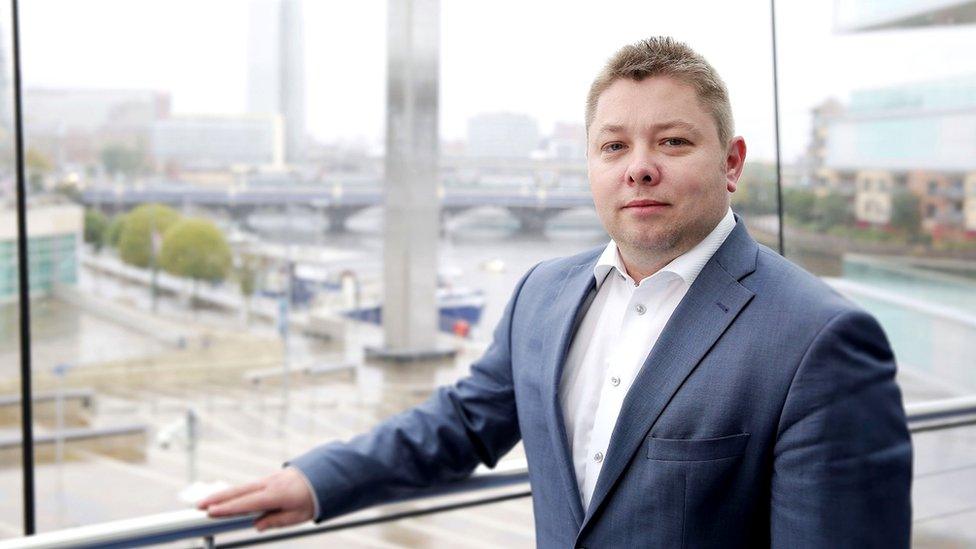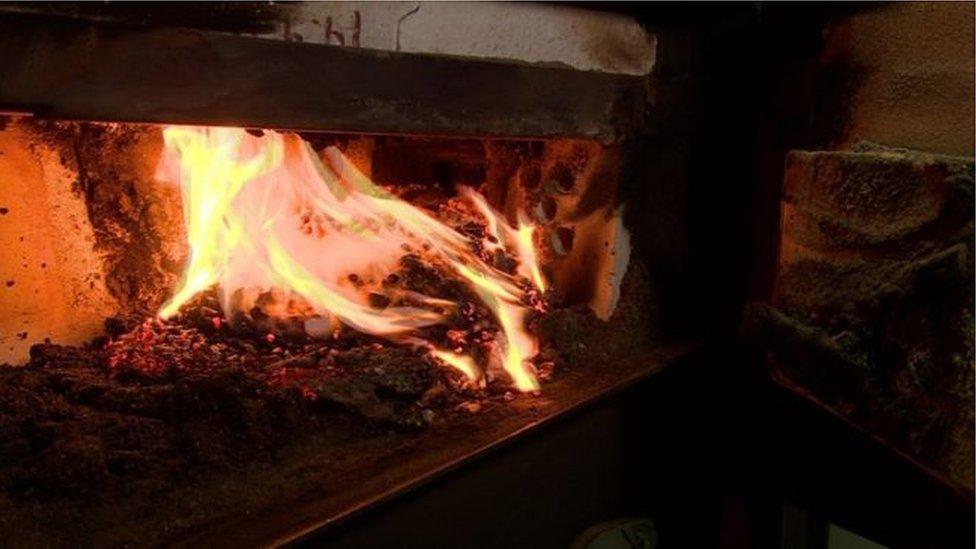RHI inquiry: Top DUP adviser 'involved in RHI cost control delays'
- Published

Timothy Johnston served as a special adviser to three first ministers: Ian Paisley, Peter Robinson and Arlene Foster
The most senior DUP special adviser was involved in the decision to delay RHI cost controls, according to evidence before the public inquiry.
Timothy Johnston is said to have told a party colleague in June 2015 that they would not be introduced.
The delay until the following November allowed hundreds of extra boilers into the lucrative scheme.
It added a huge potential burden to the public purse until the subsidy payments were heavily cut.
The claim has been made by another DUP adviser, Timothy Cairns.
He claims Mr Johnston stated at a meeting in June 2015 that "tariff controls would not be introduced and (Mr Cairns) should work with Andrew Crawford (DUP spad) at looking into an alternative".
'Deflect or discredit'
The DUP was said to be "very protective" of Mr Johnston's role as public outcry over the scandal erupted in December 2016.
Senior civil servant Andrew McCormick has told the inquiry that December 2016 and January 2017 was "a period when the DUP was very concerned to deflect or discredit any possible reference to Timothy Johnston" in relation to RHI.
By then, Mr Johnston was working in the Office of the First and Deputy First Minister (OFMDFM), now the Executive Office, as adviser to party leader Arlene Foster.
Mr McCormick said Mr Cairns told him directly about Mr Johnston's role in the delay.
He was given the information in January 2017.

The RHI scheme was established to encourage uptake of eco-friendly heat systems over the use of fossil fuels
Mr Cairns has apparently also made the allegation in two of his witness statements to the inquiry.
He also told Jonathan Bell, the then-enterprise minister, to whom he was assigned.
The public inquiry has heard claims that DUP special advisers frustrated the introduction of cost controls, claims they have denied.
Earlier, it emerged that Mr Bell and Mr Cairns had a very difficult working relationship.
Mr Cairns raised bullying allegations and claimed Mr Bell had threatened to punch him and break his finger.
The RHI (Renewable Heat Incentive) scheme was established to encourage uptake of eco-friendly heat systems over the use of fossil fuels.
However, an overgenerous offer of fuel subsidies meant it could cost taxpayers an extra £490m.
An independent inquiry into the RHI scandal was established in January 2017.
- Published23 October 2019

- Published7 November 2017
